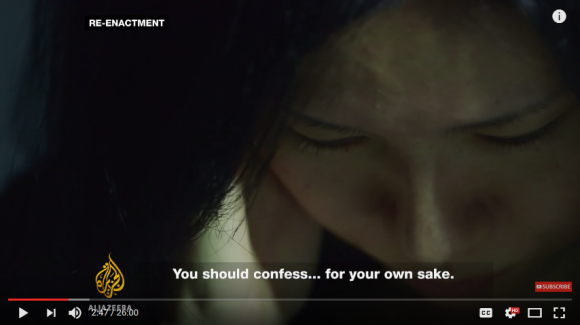
Does Japan’s legal system force suspects to confess, even if they didn’t commit the crime?
Japan is known for being one of the countries with the lowest crime rate in the world. Numerous reasons are given for this such as the illegality of weapons, a smaller wealth gap, or unspoken rules of conduct that people live by.
But one other factor behind such low crime could have a darker reason to it: fear of the Japanese legal system.
Al Jazeera news recently put out a documentary on that very subject, showing one of the scarier parts of Japan that most people don’t have experience with. Here’s the trailer for the documentary, with the full video and highlights below:
This former prosecutor in #Japan admits to using abuse to extract confessions. We investigate: https://t.co/SRwv8t9Mnl pic.twitter.com/M5NkEiw6jS
— 101 East (@AJ101East) October 7, 2016
The documentary follows the story of Keiko Aoki, a woman who in 1995 was convicted of lighting her house on fire and intentionally murdering her daughter to collect life insurance money. Her conviction was based solely on her and her husband’s written confessions that they claimed were made under extreme duress.
Keiko and her husband spent the next 20 years in jail, claiming they were innocent the entire time. It wasn’t until earlier this year that the verdict for their retrial was finally delivered, proclaiming them not guilty.
But why would someone confess to a crime they didn’t commit? Put simply, the documentary claims that the Japanese legal system is designed to extract confessions no matter what.
In Keiko’s case, she was held in an interrogation room with police investigators who constantly yelled and berated her for 12 hours straight. She was never allowed to see a lawyer. Eventually, she was told by police that her husband had already confessed to the crime, so she should too. Mentally destroyed, she gave up and wrote a confession dictated to her by police.
Keiko claims that confusion, exhaustion, and the guilt of not being able to save her daughter came together to make her admit to a crime she was innocent of.
In Japan, anyone can be held by police for 23 days without being charged. Lawyers are not allowed in interrogation rooms, and police are not required to record any of the interrogation sessions. As Hiroshi Ichikawa, a former Japanese prosecutor described, investigators can just rotate in and out as they get tired of questioning the suspect, until he or she is so mentally exhausted that they will admit to anything to make it stop.
But why is the Japanese legal system so intense when it comes to extracting confessions from the accused? Hiroshi claims it’s because there’s immense pressure on police and prosecutors to obtain a guilty verdict. In a country with a near universal conviction rate, no one wants to be the only lawyer who failed to get a guilty verdict, so they’ll do anything to get it.
The documentary is very enlightening about a part of Japan that is rarely discussed. If you want to watch the full documentary, check it out on Al Jazeera’s website or official YouTube page.
When it comes to false convictions and innocent people behind bars, Japan is not alone. The U.S. and other developed countries have just as many – if not more – legal problems. But the only way any of them can change is by getting the word out that there is a problem in the first place, and this documentary is a great first step in letting people know that the system that is supposed to serve them is broken.
Source: YouTube/Al Jazeera English via Twitter@AJ101East
Images: YouTube/Al Jazeera English

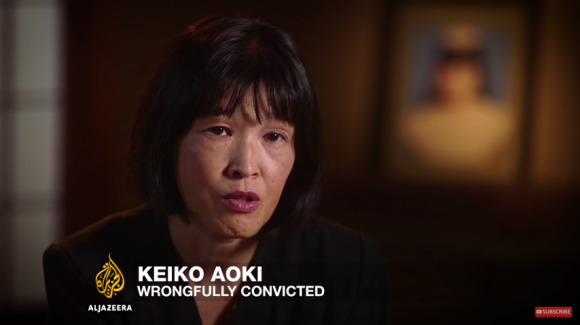
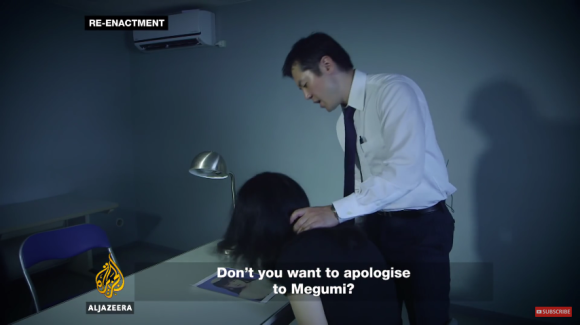
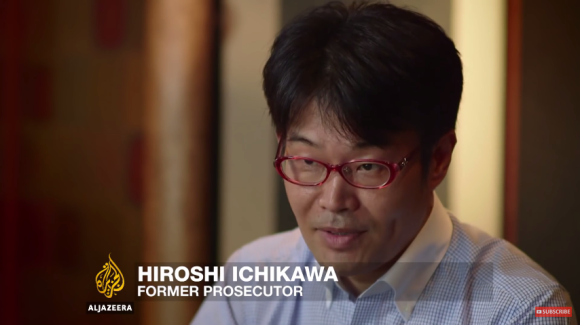
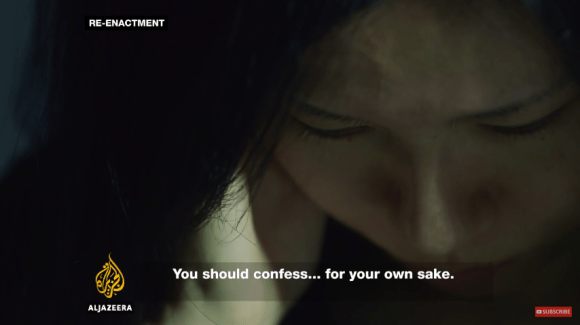
 The Sayama Incident: Kazuo Ishikawa’s half-century struggle against a wrongful murder conviction and Japan’s backward legal system
The Sayama Incident: Kazuo Ishikawa’s half-century struggle against a wrongful murder conviction and Japan’s backward legal system Cherry blossom forecasts map shows Japan’s OTHER sakura season is starting right now
Cherry blossom forecasts map shows Japan’s OTHER sakura season is starting right now Spirited Away adds a dash of Ghibli beauty to hanafuda flower cards【Photos】
Spirited Away adds a dash of Ghibli beauty to hanafuda flower cards【Photos】 Japanese convenience store releases a new bento sandwich, but is it better than a bento rice ball?
Japanese convenience store releases a new bento sandwich, but is it better than a bento rice ball? Japan’s job-quitting service claims bosses contact it to try to make their employees quit
Japan’s job-quitting service claims bosses contact it to try to make their employees quit Japan has abolished advance deportation notifications to foreigners’ lawyers
Japan has abolished advance deportation notifications to foreigners’ lawyers Starbucks Japan releases new Chocolate Milk for Valentine’s Day
Starbucks Japan releases new Chocolate Milk for Valentine’s Day This gigantic judo dojo-sized hotel room will make you feel like royalty, but it’s disappearing soon
This gigantic judo dojo-sized hotel room will make you feel like royalty, but it’s disappearing soon Starbucks Japan Unveils Posh Leather Cup Sleeves as Part of Charity Drive
Starbucks Japan Unveils Posh Leather Cup Sleeves as Part of Charity Drive Japan’s hottest city uses its scorching record to boost tourism
Japan’s hottest city uses its scorching record to boost tourism Denny’s new Japanese parfait looks totally different depending on what angle you look at it from
Denny’s new Japanese parfait looks totally different depending on what angle you look at it from Yokai are descending upon Tokyo this spring in the latest immersive art experience
Yokai are descending upon Tokyo this spring in the latest immersive art experience Japan’s Naruto theme park now offering real-world version of Minato’s kunai ninja weapon
Japan’s Naruto theme park now offering real-world version of Minato’s kunai ninja weapon Japan has a new bar just for people thinking about quitting their jobs, and the drinks are free
Japan has a new bar just for people thinking about quitting their jobs, and the drinks are free New Studio Ghibli stamps leave an impression on your stationery…and your heart
New Studio Ghibli stamps leave an impression on your stationery…and your heart Japan cherry blossom forecast update moves up sakura dates for many parts of the country
Japan cherry blossom forecast update moves up sakura dates for many parts of the country Archfiend Hello Kitty appears as Sanrio launches new team-up with Yu-Gi-Oh【Pics】
Archfiend Hello Kitty appears as Sanrio launches new team-up with Yu-Gi-Oh【Pics】 Studio Ghibli turns My Neighbour Totoro characters into bag charms for everyday adventures
Studio Ghibli turns My Neighbour Totoro characters into bag charms for everyday adventures If you haven’t tried an antenna shop in Japan, you’re missing out
If you haven’t tried an antenna shop in Japan, you’re missing out Studio Ghibli releases Spirited Away bags in Japan, based on a mysterious festival
Studio Ghibli releases Spirited Away bags in Japan, based on a mysterious festival Morning-after pill finally available in Japan without a prescription, must be taken at pharmacy
Morning-after pill finally available in Japan without a prescription, must be taken at pharmacy Starbucks Japan releases new drinkware and goods for Valentine’s Day
Starbucks Japan releases new drinkware and goods for Valentine’s Day Japan releases first official sakura cherry blossom forecast for 2026
Japan releases first official sakura cherry blossom forecast for 2026 10 times to avoid traveling in Japan in 2026
10 times to avoid traveling in Japan in 2026 Starbucks Japan releases new Frappuccino and latte for Valentine’s Day
Starbucks Japan releases new Frappuccino and latte for Valentine’s Day Our 52-year-old pole dancing reporter shares his tips for achieving your New Year’s exercise goal
Our 52-year-old pole dancing reporter shares his tips for achieving your New Year’s exercise goal China’s don’t-go-to-Japan warning looks to be affecting tourist crowds on Miyajima
China’s don’t-go-to-Japan warning looks to be affecting tourist crowds on Miyajima Studio Ghibli releases new “komorebi” plush toys from Princess Mononoke and Spirited Away
Studio Ghibli releases new “komorebi” plush toys from Princess Mononoke and Spirited Away Ramen restaurant’s English menu prices are nearly double its Japanese ones, denies discriminating
Ramen restaurant’s English menu prices are nearly double its Japanese ones, denies discriminating Survey asks foreign tourists what bothered them in Japan, more than half gave same answer
Survey asks foreign tourists what bothered them in Japan, more than half gave same answer Japan’s human washing machines will go on sale to general public, demos to be held in Tokyo
Japan’s human washing machines will go on sale to general public, demos to be held in Tokyo We deeply regret going into this tunnel on our walk in the mountains of Japan
We deeply regret going into this tunnel on our walk in the mountains of Japan Studio Ghibli releases Kodama forest spirits from Princess Mononoke to light up your home
Studio Ghibli releases Kodama forest spirits from Princess Mononoke to light up your home Major Japanese hotel chain says reservations via overseas booking sites may not be valid
Major Japanese hotel chain says reservations via overseas booking sites may not be valid Put sesame oil in your coffee? Japanese maker says it’s the best way to start your day【Taste test】
Put sesame oil in your coffee? Japanese maker says it’s the best way to start your day【Taste test】 No more using real katana for tourism activities, Japan’s National Police Agency says
No more using real katana for tourism activities, Japan’s National Police Agency says Starbucks Japan reveals new sakura drinkware collection, inspired by evening cherry blossoms
Starbucks Japan reveals new sakura drinkware collection, inspired by evening cherry blossoms Updated cherry blossom forecast shows extra-long sakura season for Japan this year
Updated cherry blossom forecast shows extra-long sakura season for Japan this year
Leave a Reply